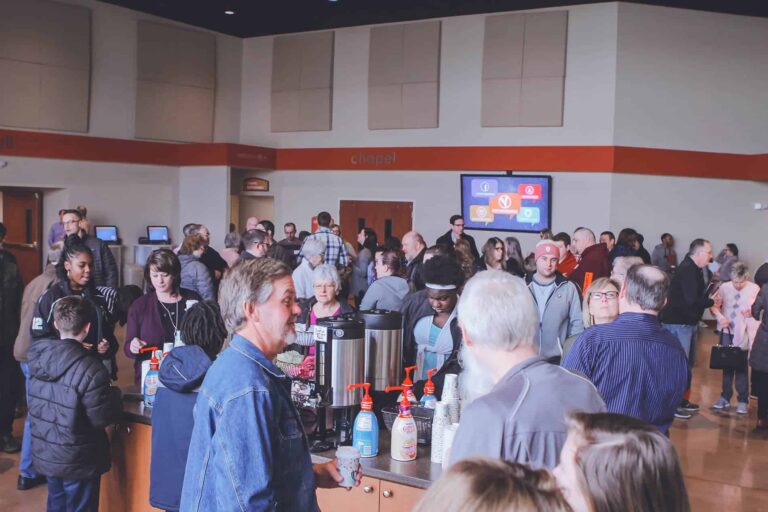The opioid crisis has devastated communities across the nation, leaving countless individuals and families grappling with addiction, loss, and the overwhelming challenges of recovery. As the crisis persists, faith-based organizations—churches, mosques, synagogues, and other spiritual communities—are stepping up to offer not just spiritual guidance, but also emotional and material support to those battling opioid addiction.
In this blog post, we will explore the unique role that faith-based organizations can play in addressing the opioid crisis. From providing a sense of community to offering holistic care, these institutions are making a significant impact on the road to recovery.
1. Spiritual Support: Offering Hope and Purpose
One of the most powerful ways that faith-based organizations can support individuals struggling with opioid addiction is by offering spiritual guidance and hope. Addiction often leaves individuals feeling hopeless, trapped in a cycle of shame, guilt, and despair. Faith-based organizations provide a space where individuals can reconnect with their spirituality, rediscover a sense of purpose, and find solace in a higher power.
- Restoring Faith in Oneself and Others: Addiction erodes self-esteem and damages relationships. Faith-based organizations often focus on forgiveness, redemption, and second chances—key concepts that can help individuals in recovery rebuild their self-worth and restore relationships with loved ones.
- Creating a Sense of Belonging: Many individuals battling addiction feel isolated and alone. Faith-based communities offer a place of acceptance where people can feel they belong, regardless of their past. This sense of belonging is crucial in building emotional resilience and fostering long-term recovery.
- Prayer and Meditation: Spiritual practices such as prayer, meditation, and worship services can provide emotional comfort and reduce stress, both of which are essential for those navigating the ups and downs of recovery. These practices can also offer individuals a way to cope with cravings and triggers.
2. Emotional Support: Providing Compassionate Care
Faith-based organizations are well-positioned to offer emotional support to individuals in recovery through compassionate care and a non-judgmental approach. Addiction is often accompanied by stigma, which can prevent people from seeking help or opening up about their struggles. Churches and other religious communities can serve as safe havens where individuals feel accepted and supported, rather than judged or shamed.
- Counseling and Mentorship: Many faith-based organizations offer free or low-cost counseling services that incorporate spiritual elements, such as pastoral counseling, to help individuals work through the emotional and psychological aspects of addiction. These organizations may also provide mentorship programs where individuals in recovery can connect with supportive members of the congregation who offer guidance and encouragement.
- Support Groups: Faith-based recovery programs, such as Celebrate Recovery and faith-based 12-step programs, provide structured group support for individuals battling addiction. These programs integrate spiritual teachings with traditional addiction recovery models, offering both emotional and spiritual healing.
- Encouragement and Affirmation: Faith-based communities are often built on principles of love, acceptance, and encouragement. Congregants and leaders can offer regular affirmation to individuals in recovery, celebrating their progress, providing words of comfort in difficult times, and fostering an atmosphere of hope.
3. Material Support: Meeting Practical Needs
In addition to spiritual and emotional support, many faith-based organizations provide critical material assistance to individuals affected by opioid addiction. Recovery often requires more than just medical treatment—it involves addressing the many social, economic, and personal challenges that arise along the way.
- Food, Shelter, and Clothing: Churches and other religious institutions often run food banks, shelters, and clothing drives. These services can be invaluable for individuals in recovery who may be struggling with homelessness, unemployment, or financial insecurity.
- Transportation and Childcare: For individuals seeking treatment or attending recovery meetings, transportation and childcare can be significant barriers. Faith-based organizations often step in to provide practical support, such as offering rides to appointments or organizing childcare services, so individuals can focus on their recovery.
- Job Training and Employment Assistance: Many faith-based organizations partner with local businesses or government agencies to offer job training, resume workshops, and employment opportunities. Having stable employment can help individuals in recovery regain independence and rebuild their lives.
- Financial Assistance: Some faith-based organizations offer direct financial assistance to help individuals cover the costs of treatment, housing, or daily expenses. This financial support can make a critical difference in helping people access the care they need and stay on track in their recovery journey.
4. Community Outreach and Prevention: Educating and Raising Awareness
Prevention is key in the fight against opioid addiction, and faith-based organizations are uniquely positioned to raise awareness and educate their communities about the dangers of opioid misuse. Through outreach initiatives, churches and other spiritual communities can help prevent addiction before it starts and destigmatize treatment and recovery.
- Educational Programs: Many faith-based organizations hold workshops, seminars, and community events to educate people about the risks of opioid misuse, signs of addiction, and available treatment options. By bringing these discussions into a spiritual context, they can reach individuals who may be hesitant to engage with secular health systems.
- Youth Programs: Faith-based organizations often have strong youth programs that can be instrumental in early intervention and prevention efforts. By providing positive role models, mentorship, and substance abuse education, these programs can help prevent opioid misuse among young people and offer them healthy alternatives for coping with stress and peer pressure.
- Partnering with Local Organizations: Many faith-based communities work in collaboration with local healthcare providers, government agencies, and non-profit organizations to create a comprehensive network of support. These partnerships can amplify the impact of faith-based organizations by expanding access to resources such as mental health services, addiction treatment, and recovery programs.
5. The Role of Faith in Long-Term Recovery
Long-term recovery from opioid addiction requires not only medical and therapeutic support but also a strong foundation of emotional and spiritual resilience. Faith-based organizations can play a vital role in helping individuals build this foundation through ongoing spiritual guidance and community support.
- Maintaining Sobriety Through Faith: For many people in recovery, faith serves as a guiding principle that helps them stay committed to their sobriety. Spiritual practices such as regular worship, prayer, and reading sacred texts can provide individuals with strength and direction as they navigate the challenges of recovery.
- Building a Faith-Based Support Network: Having a supportive community of like-minded individuals can be a powerful source of motivation and accountability in long-term recovery. Faith-based organizations often emphasize fellowship and community, creating a network of support that individuals in recovery can lean on for encouragement, advice, and friendship.
- Healing Beyond the Individual: Addiction impacts not just the individual but also their family and community. Faith-based organizations can facilitate healing on a broader scale by offering family counseling, support groups for loved ones, and community-wide initiatives aimed at reducing the stigma of addiction.
Conclusion: Faith-Based Organizations as Beacons of Hope
The opioid crisis is one of the most pressing public health challenges of our time, but faith-based organizations are rising to the occasion by offering a comprehensive, compassionate, and holistic approach to recovery. From providing spiritual guidance and emotional support to meeting material needs and educating the community, these organizations are serving as beacons of hope in the battle against opioid addiction.
For those battling addiction, the journey to recovery can be long and difficult, but with the support of a faith-based community, individuals can find the strength, hope, and love they need to reclaim their lives. By leveraging their unique position within the community, faith-based organizations are making a lasting impact, helping individuals not only overcome addiction but also find healing, purpose, and belonging.
If you or someone you know is struggling with opioid addiction, don’t hesitate to reach out to a local faith-based organization. They can offer more than just a helping hand—they can offer a path to lasting recovery and a brighter future.






